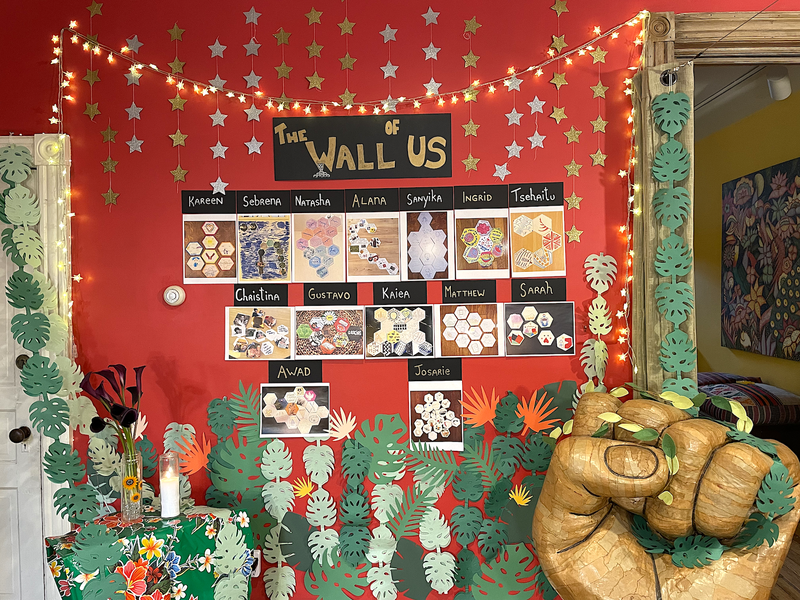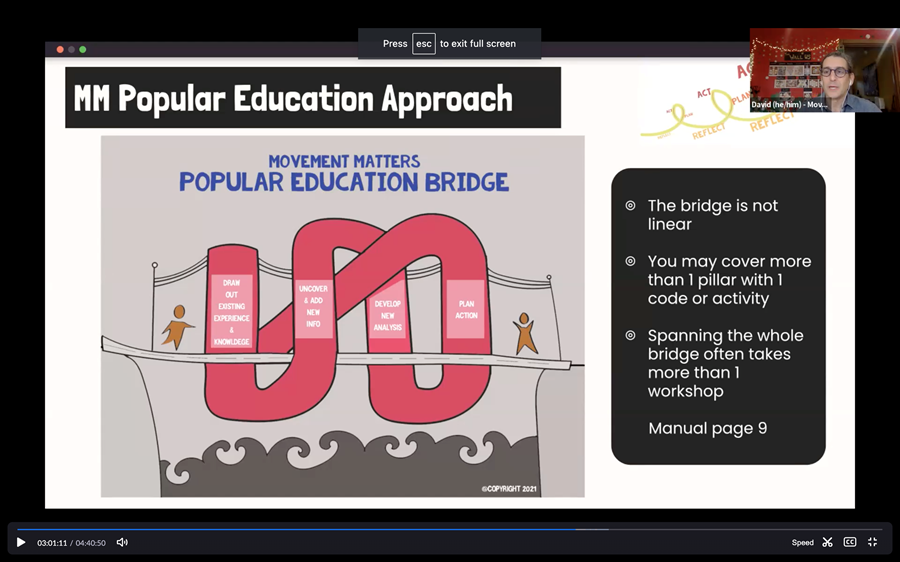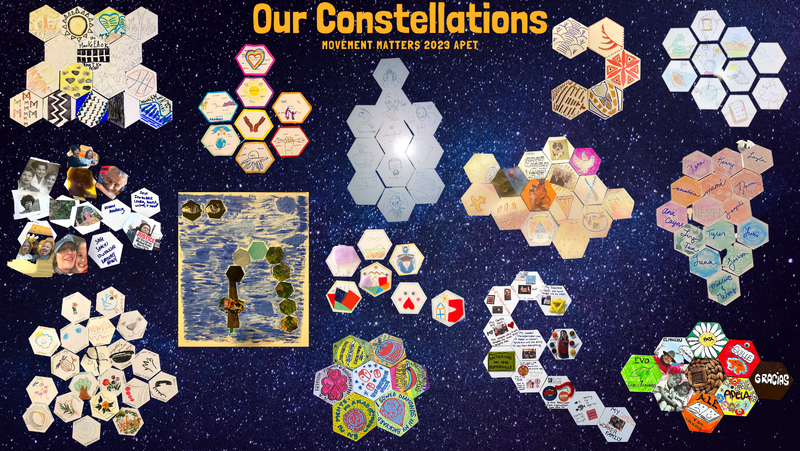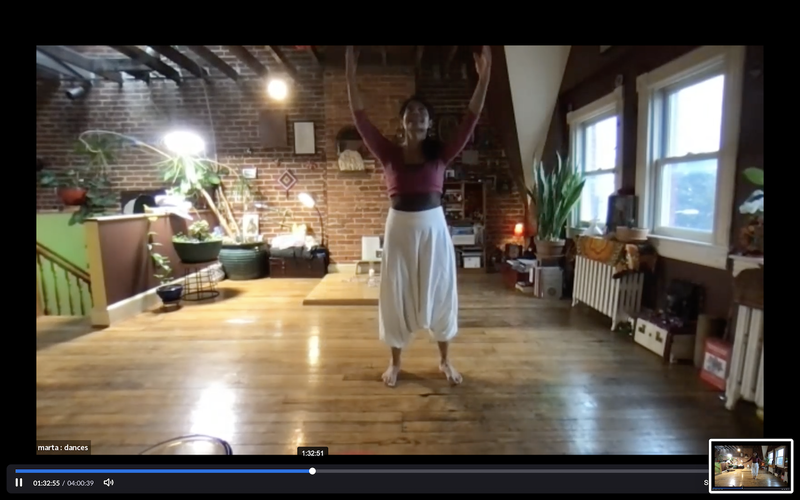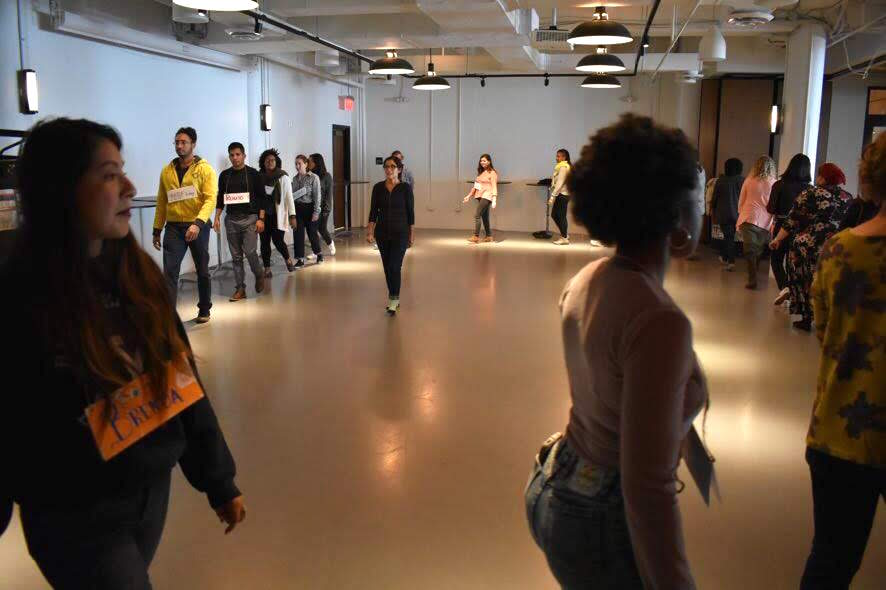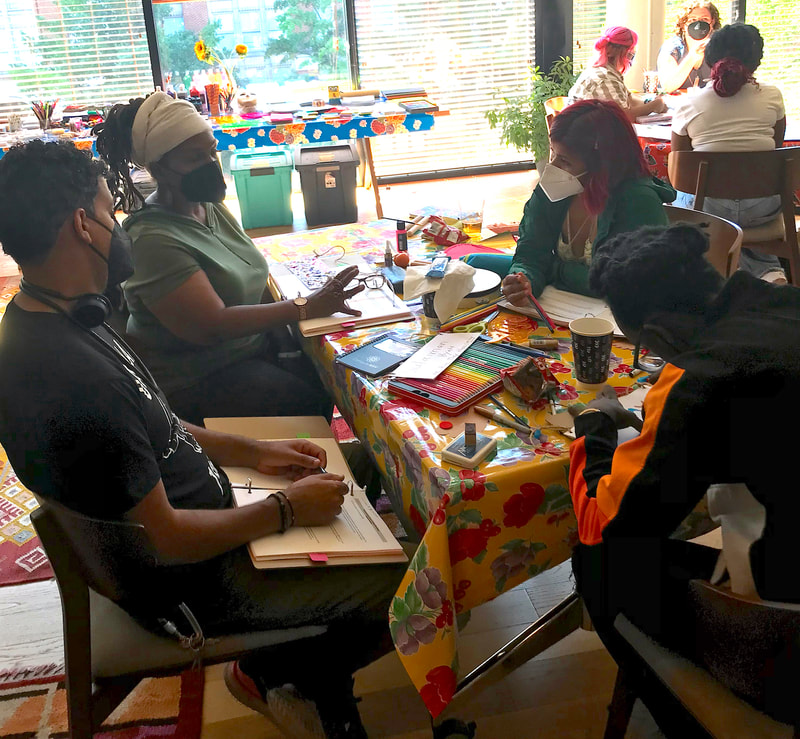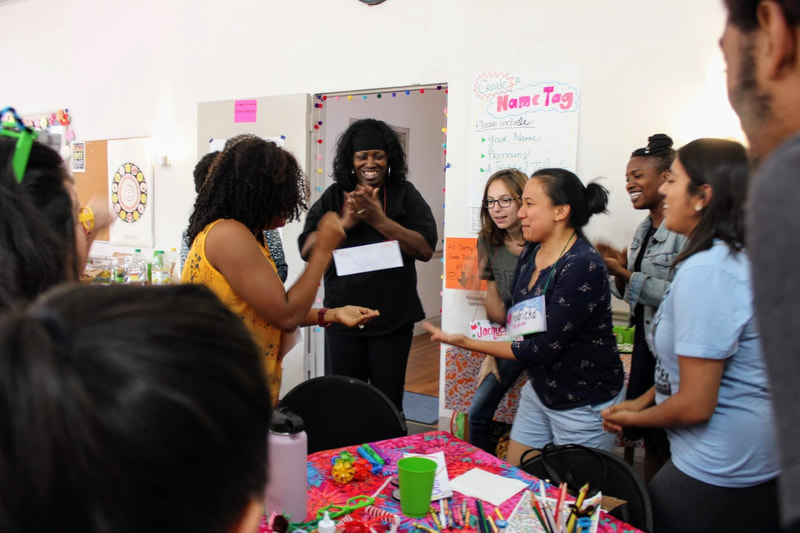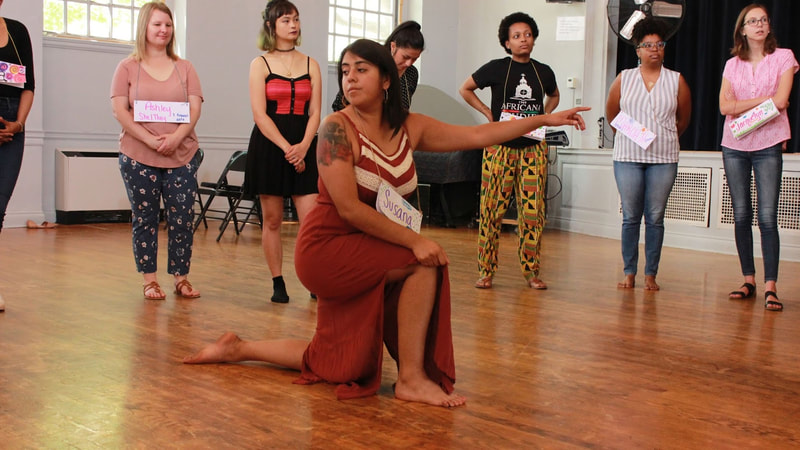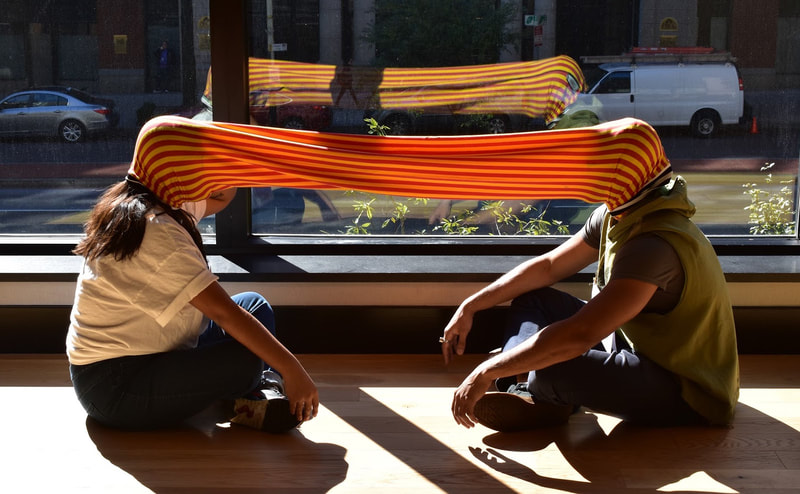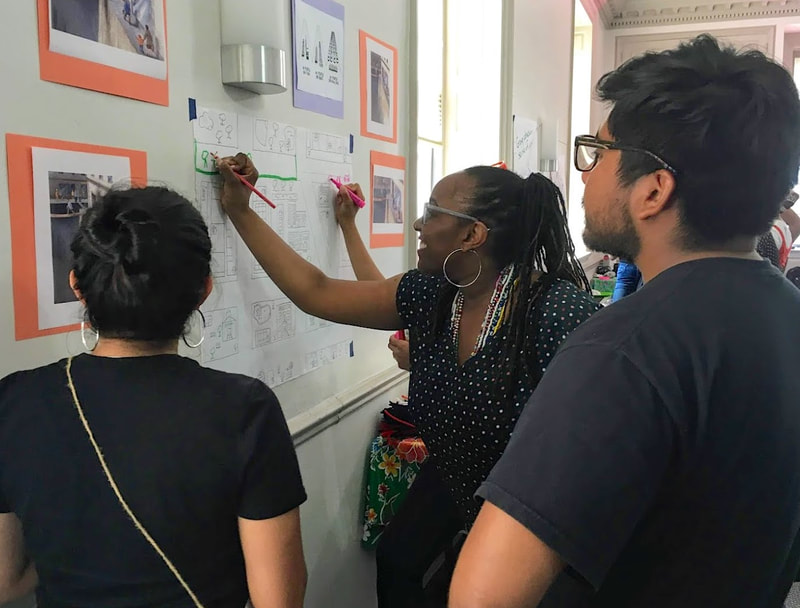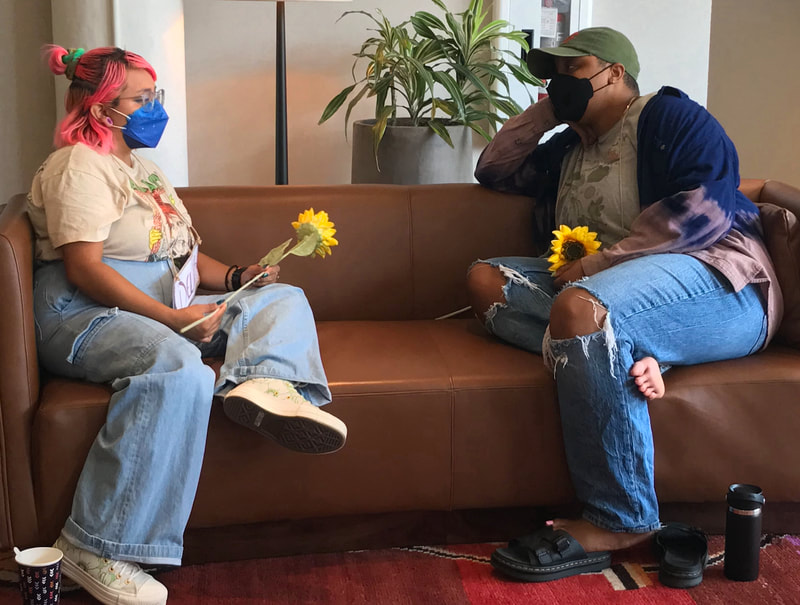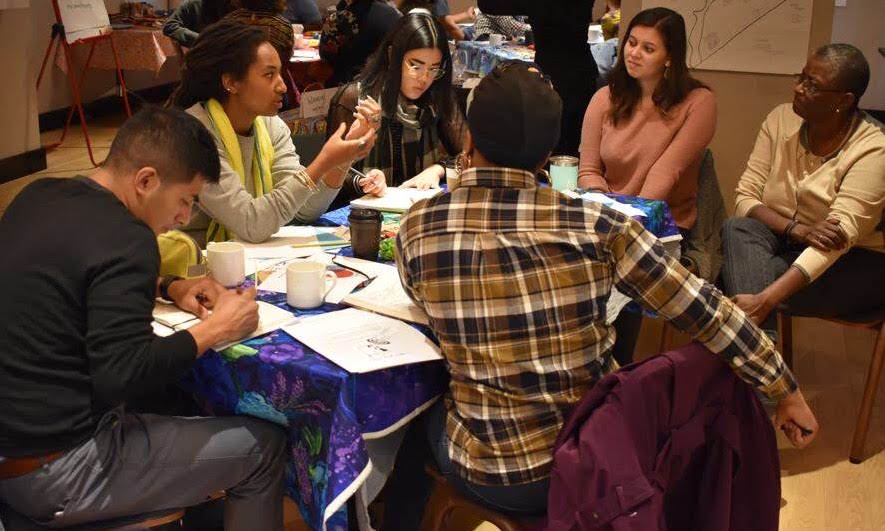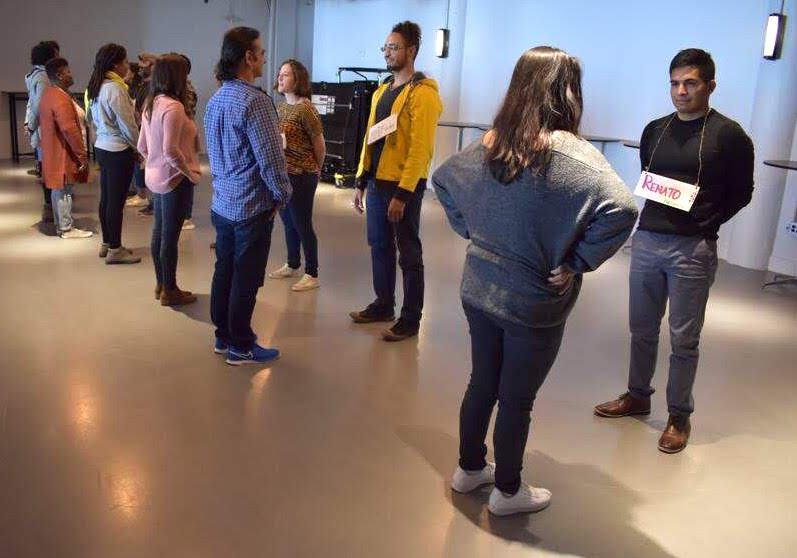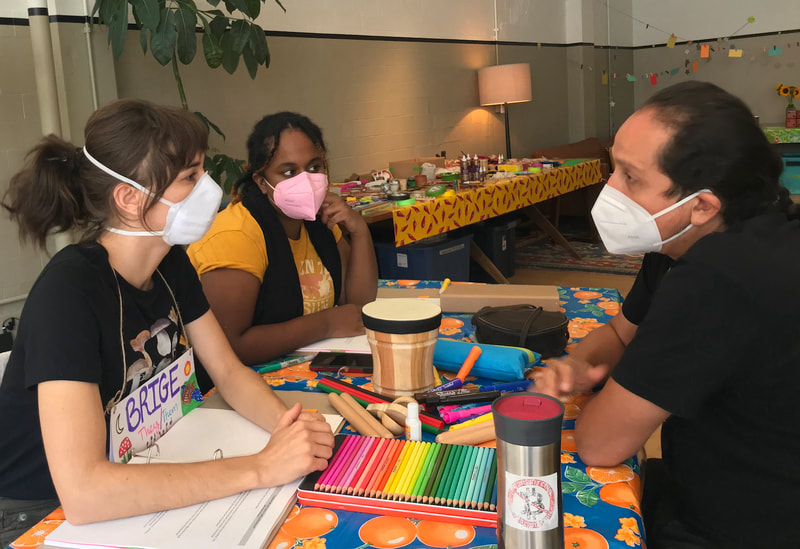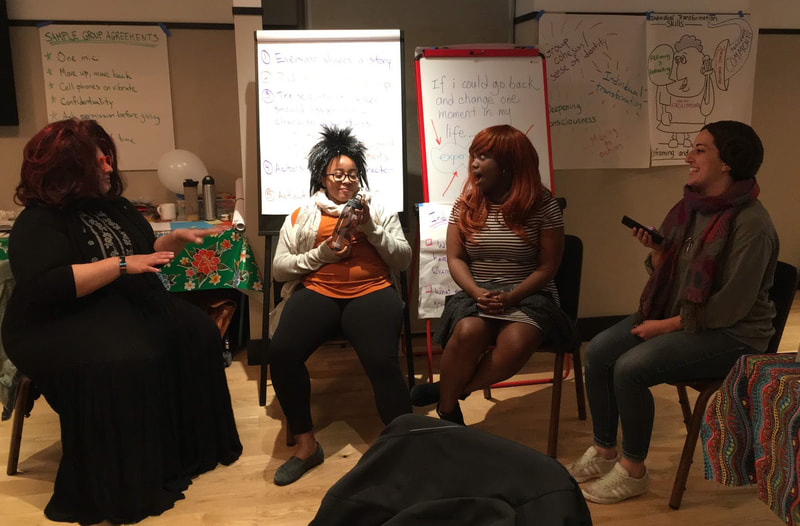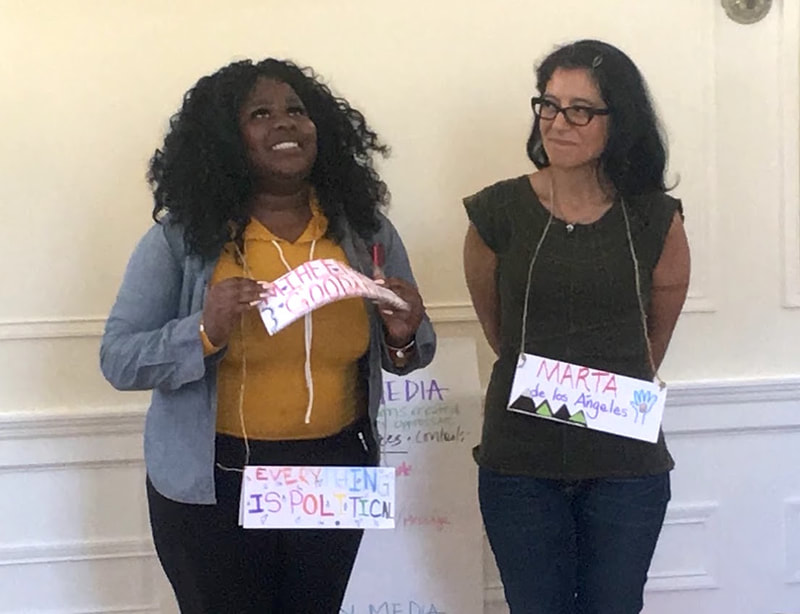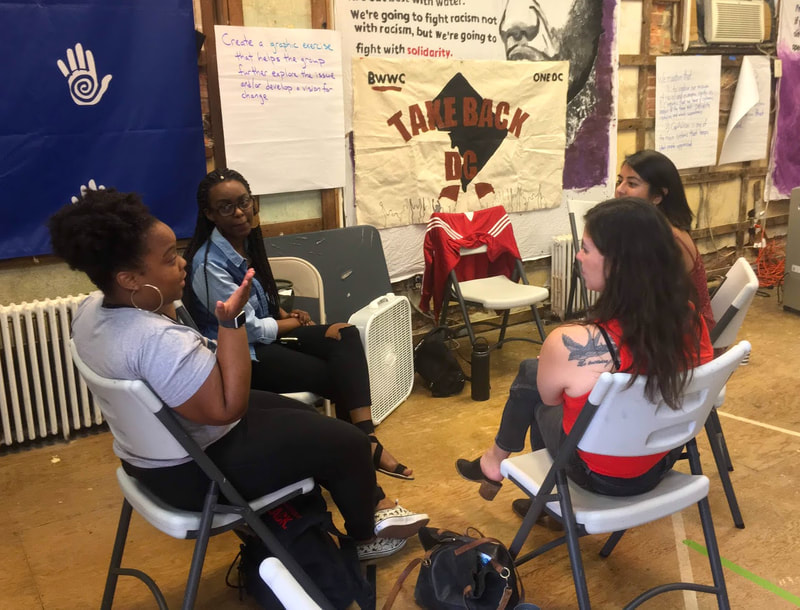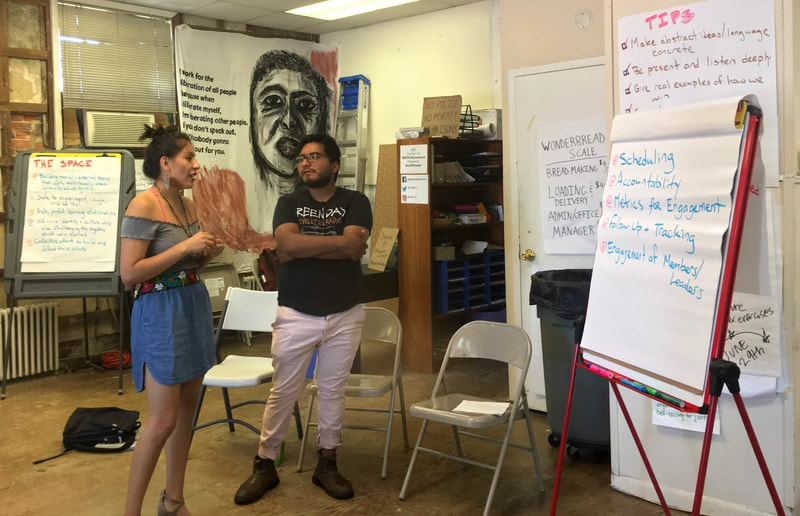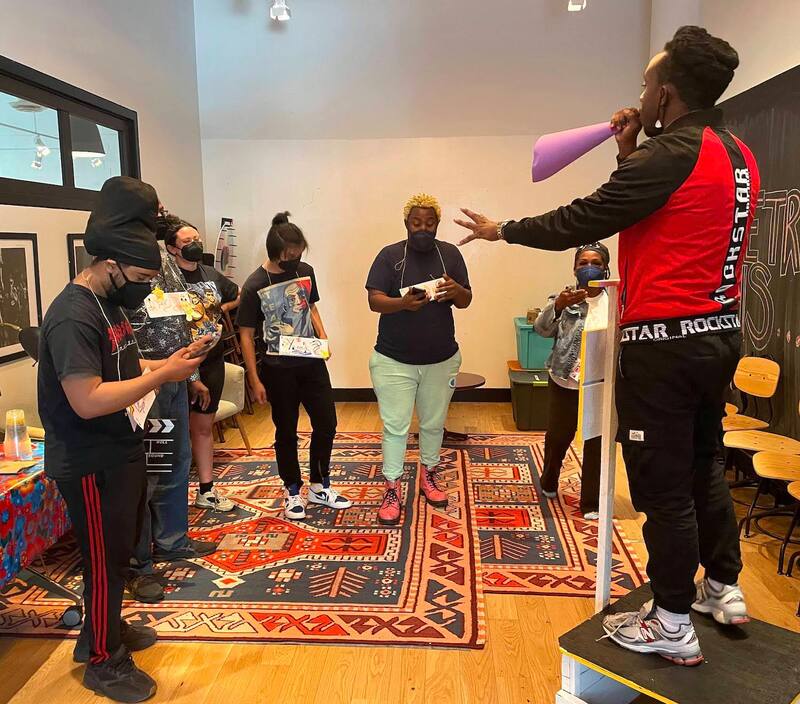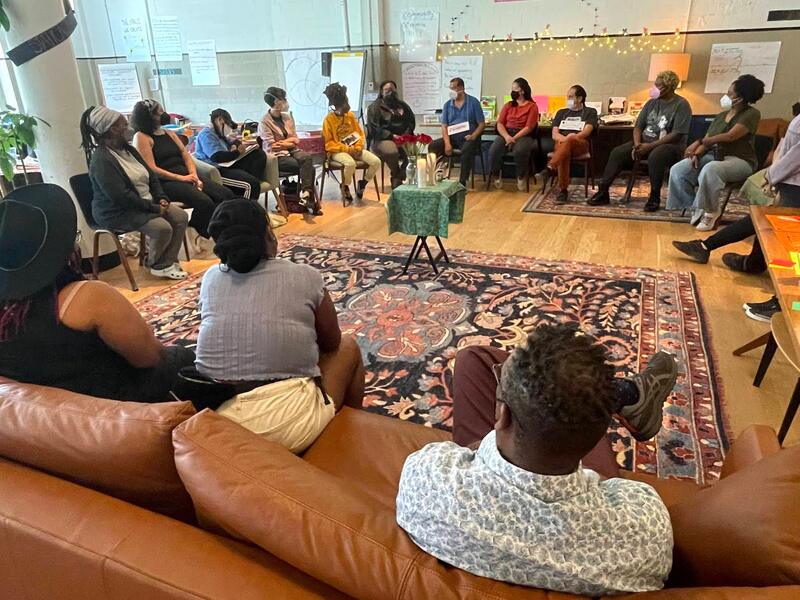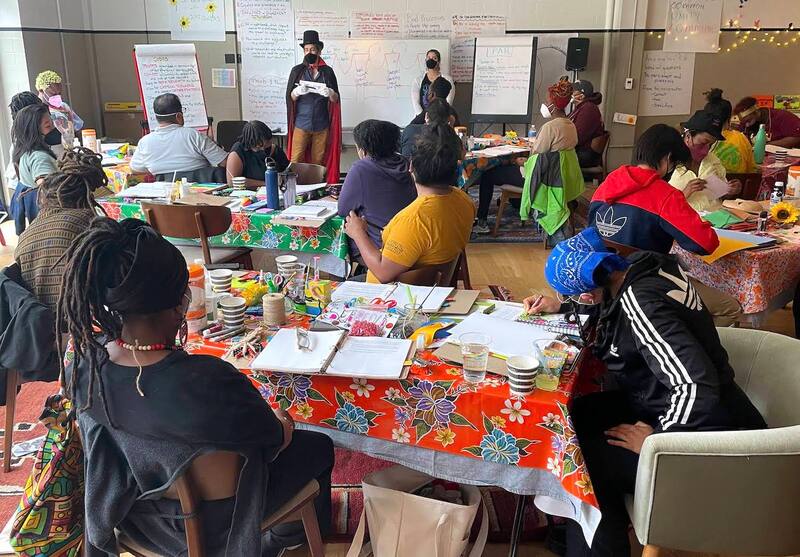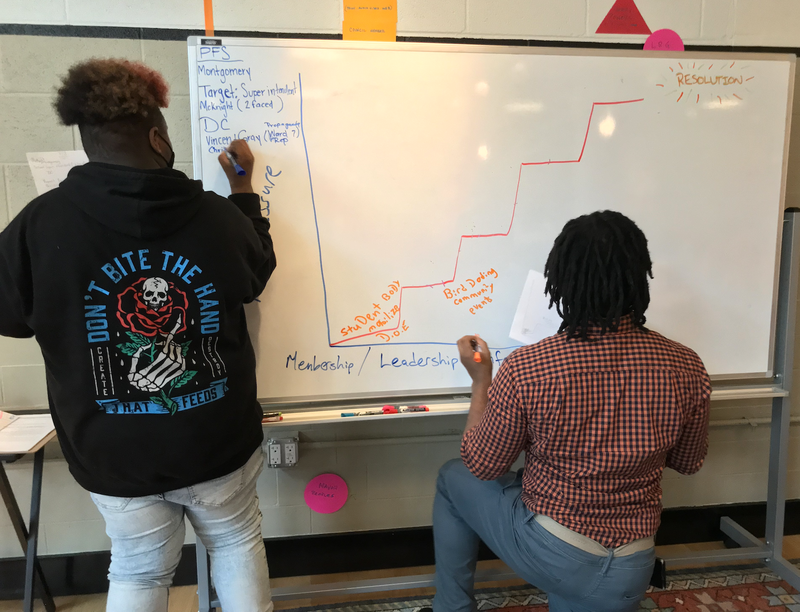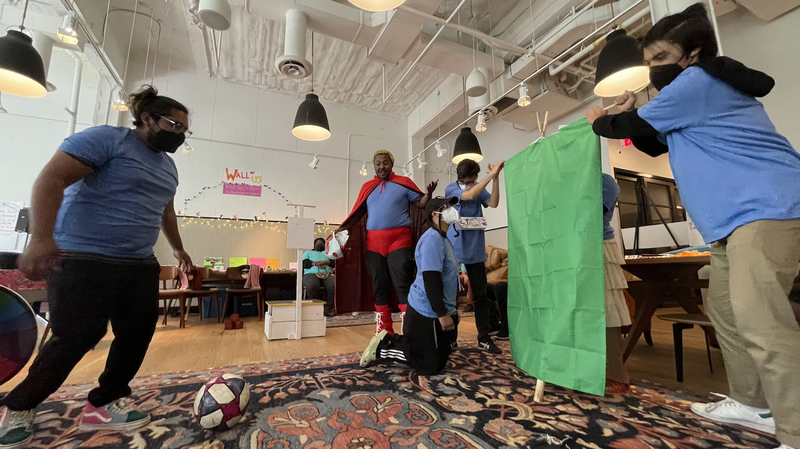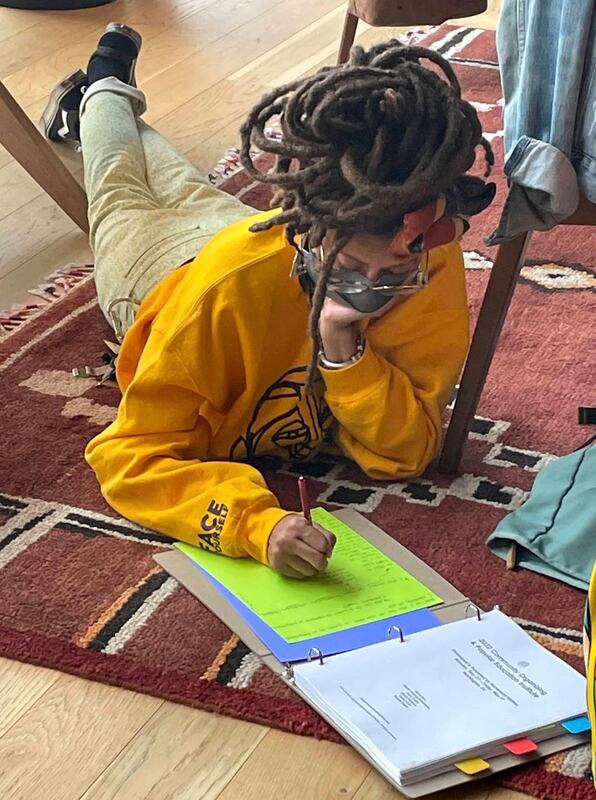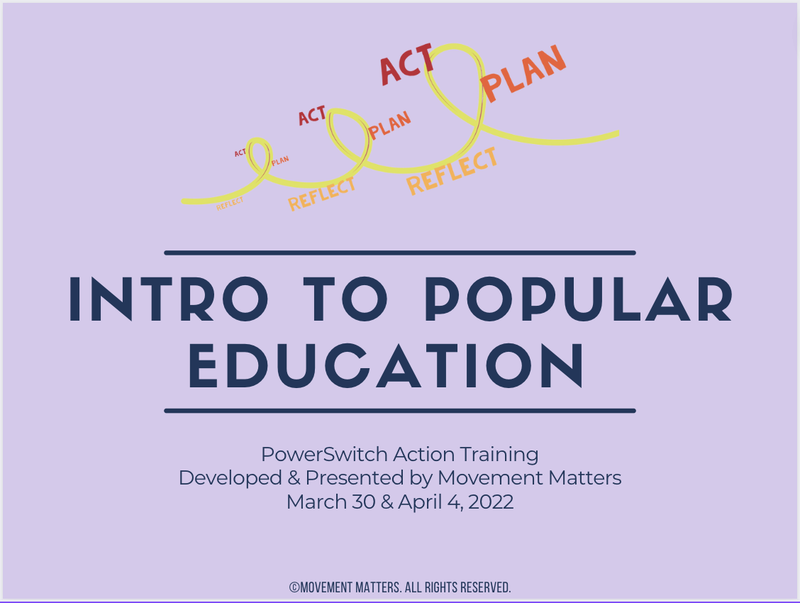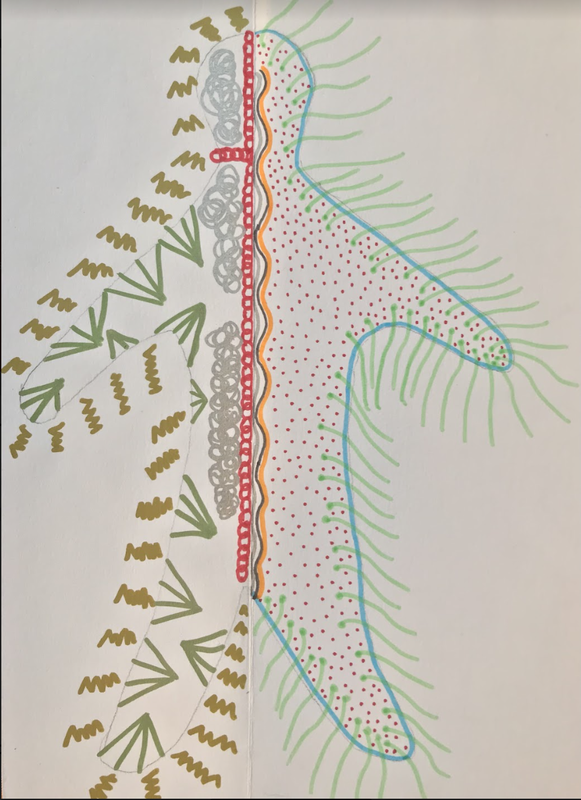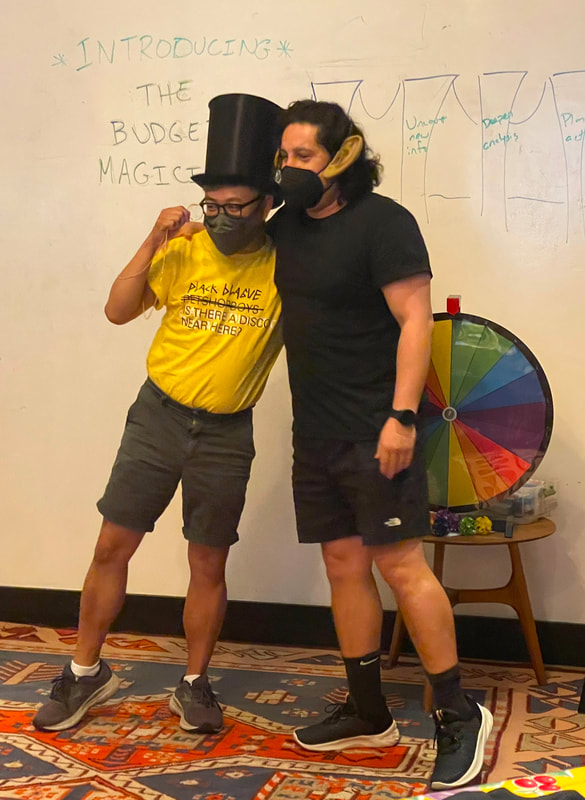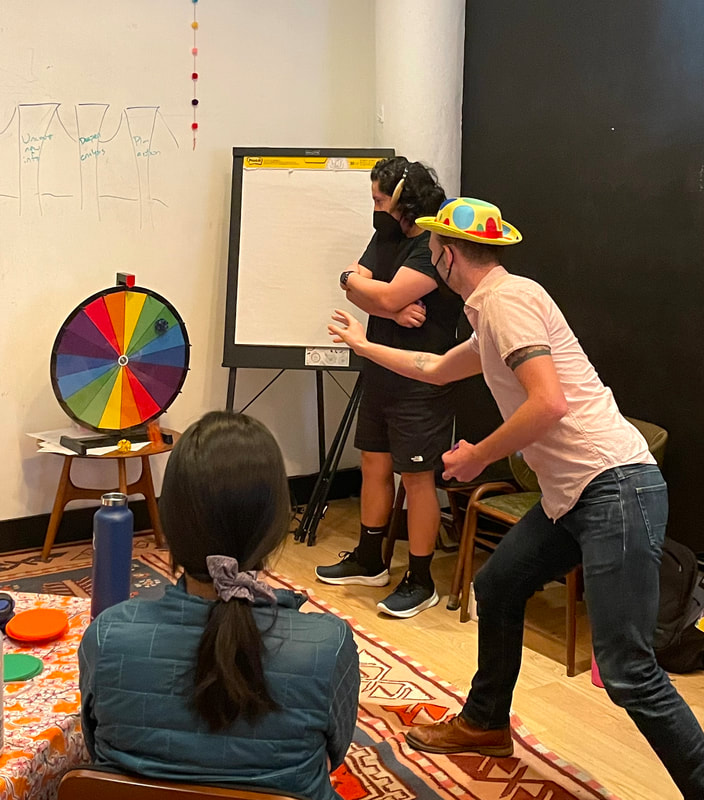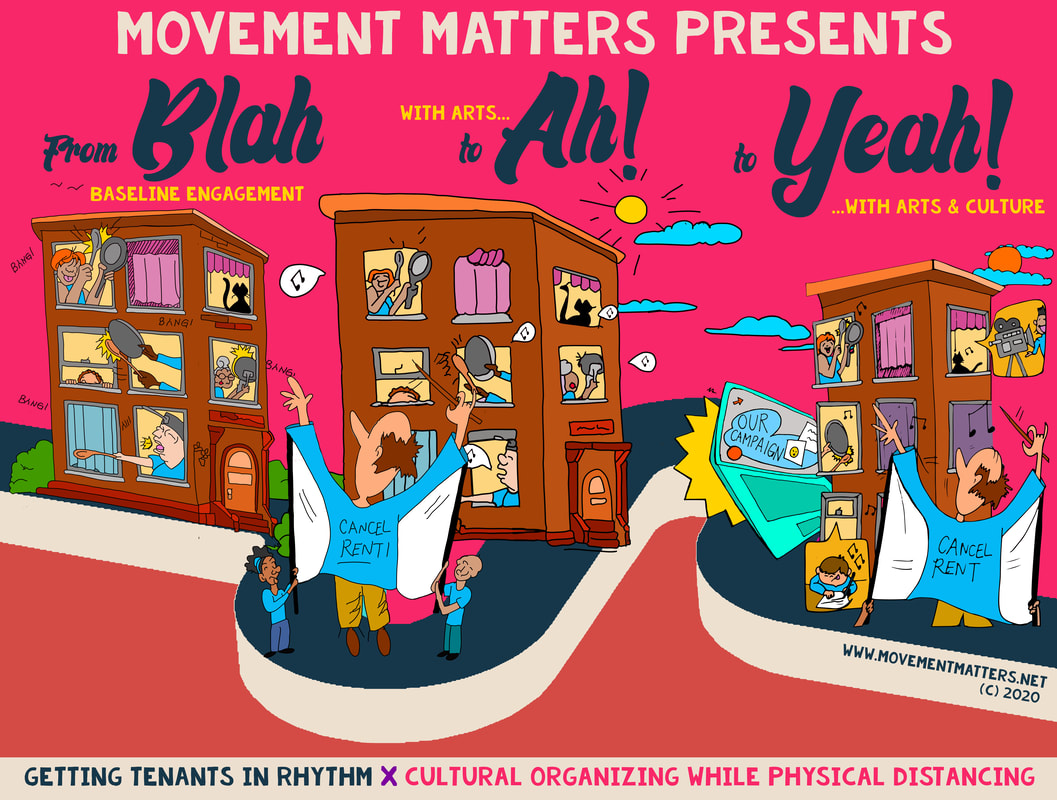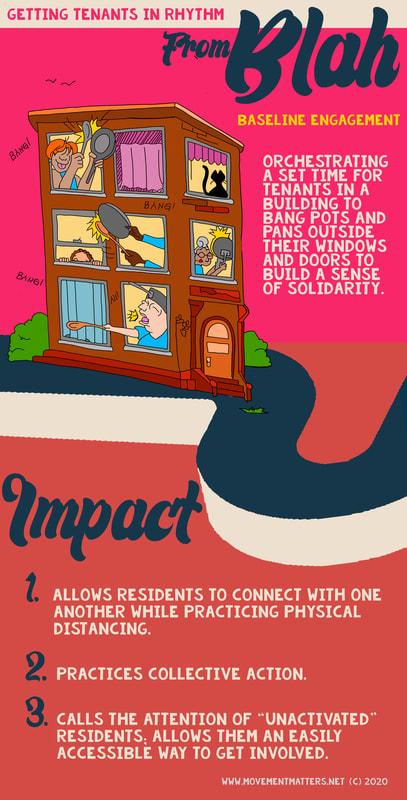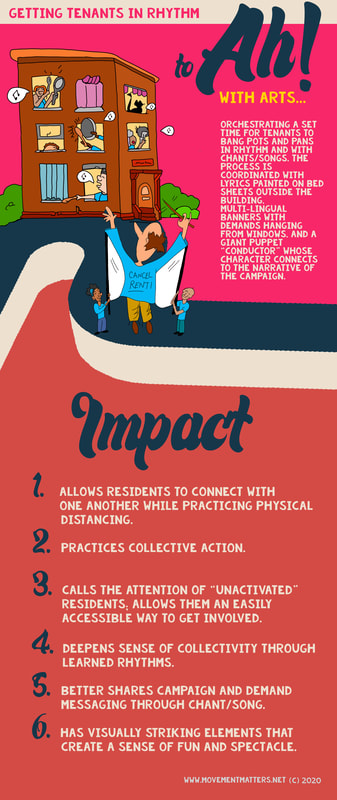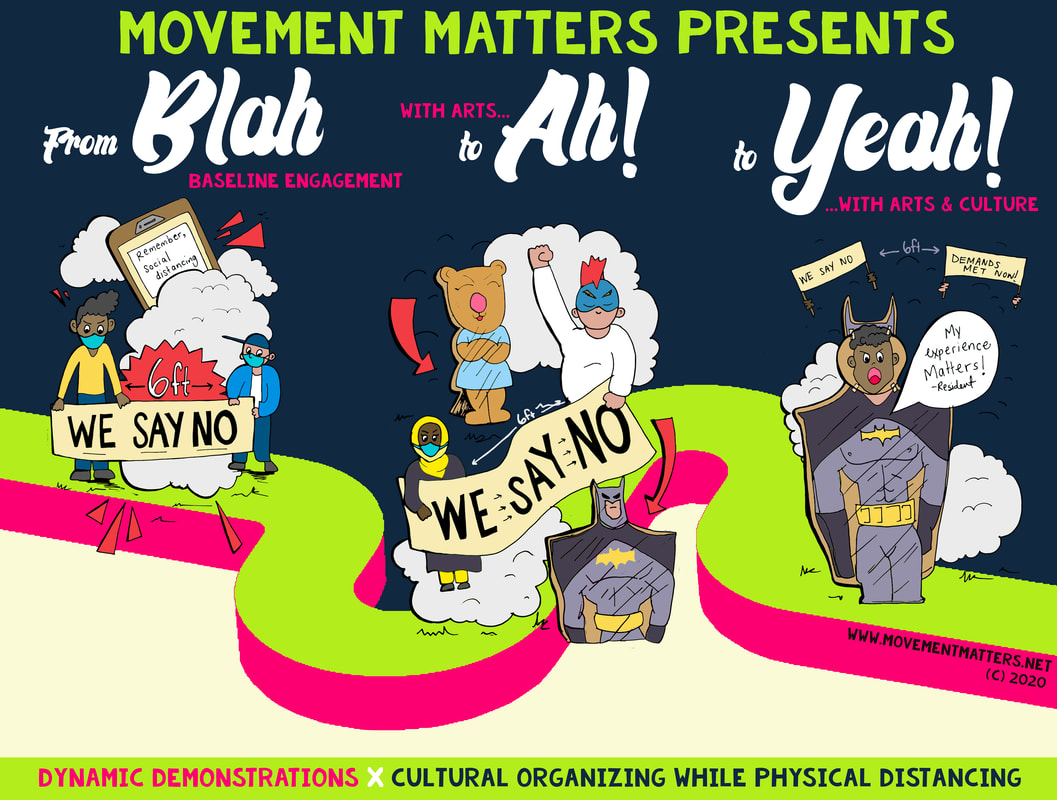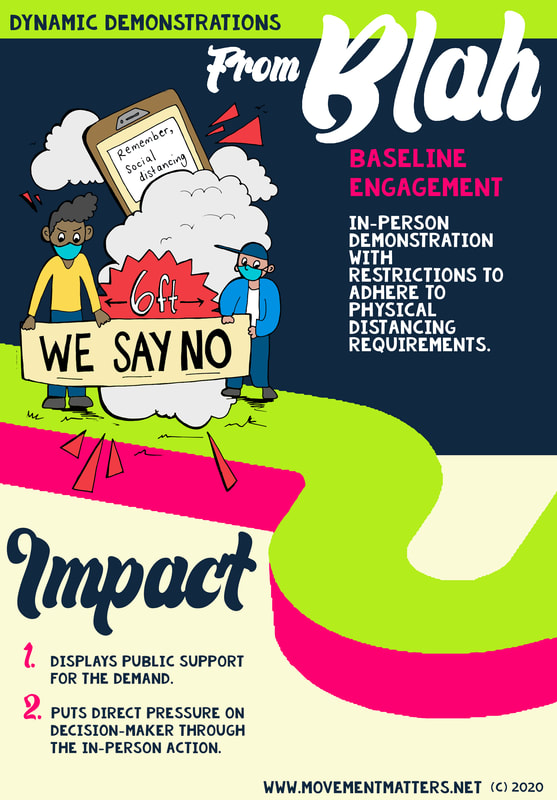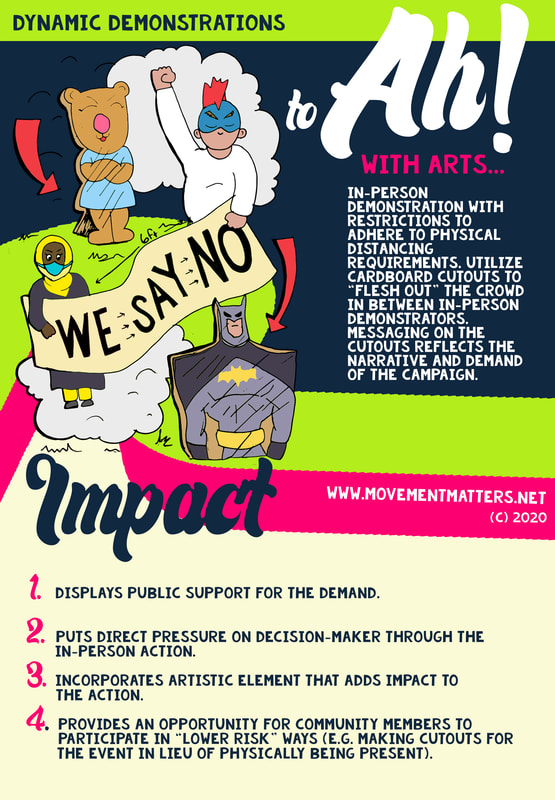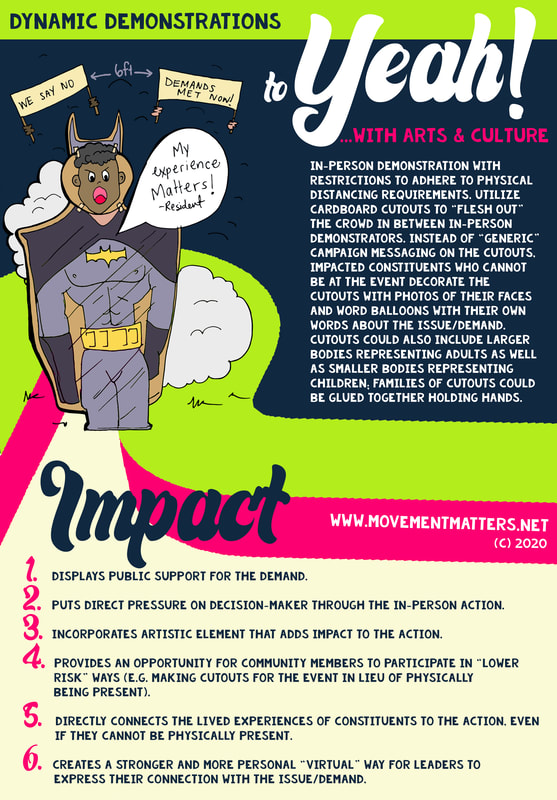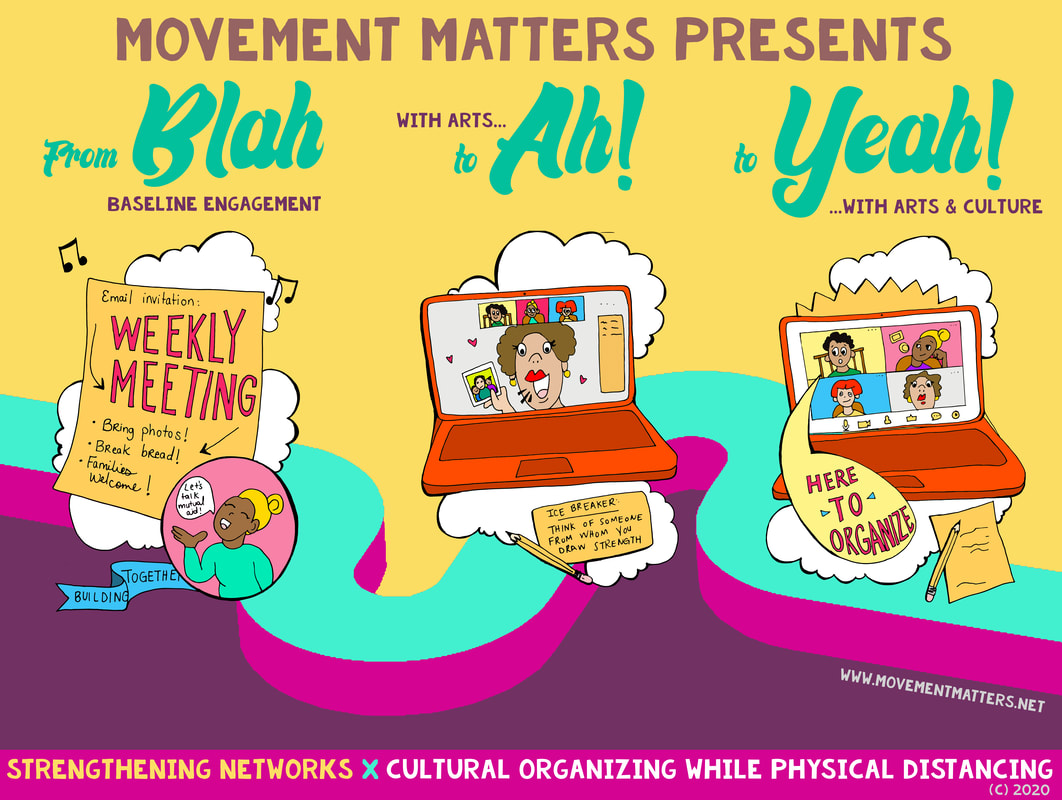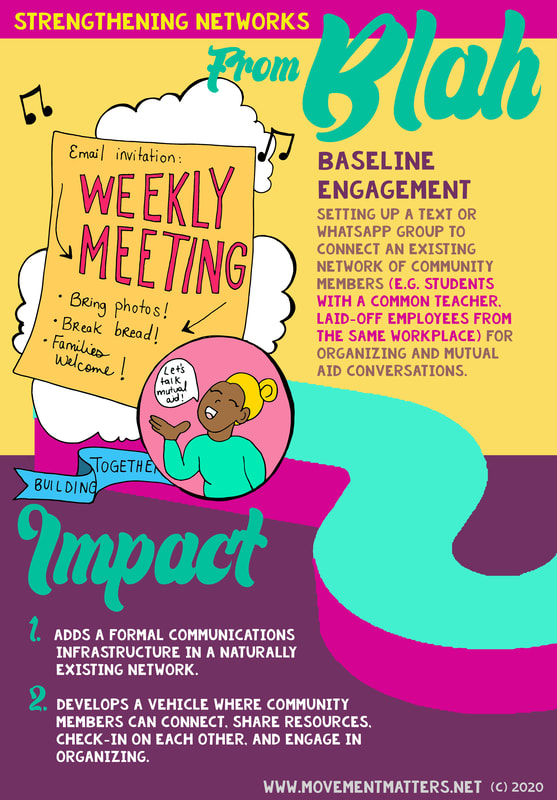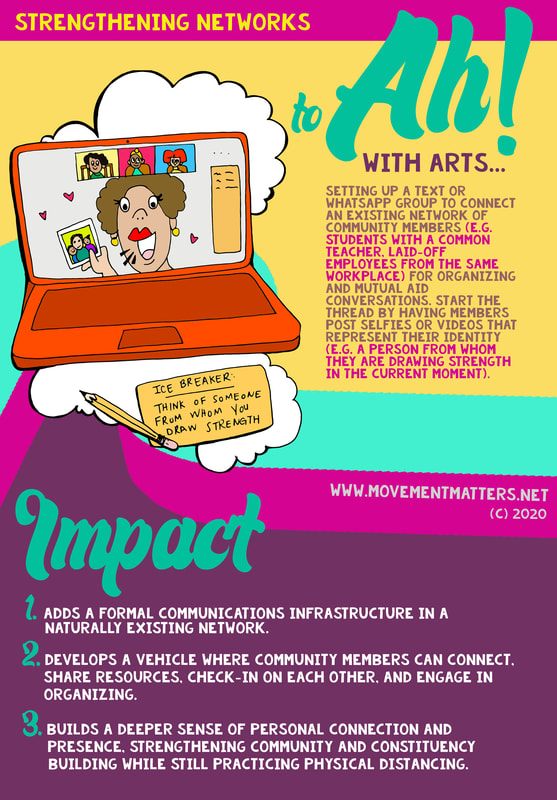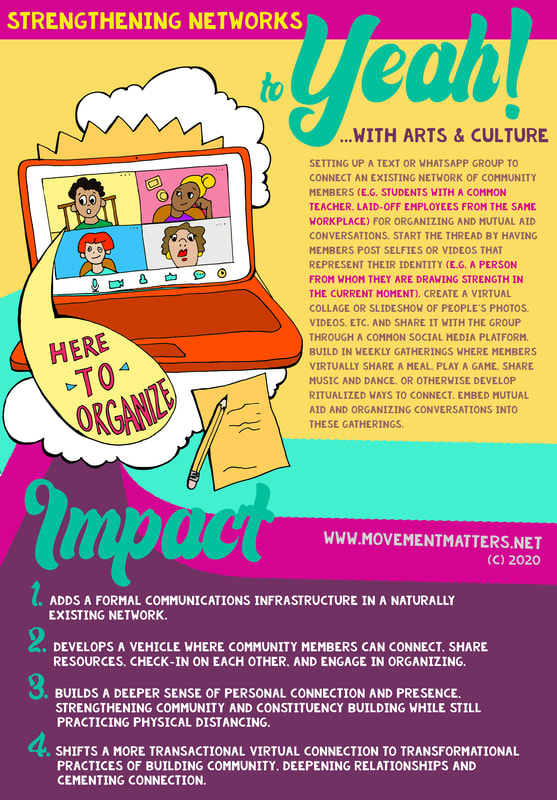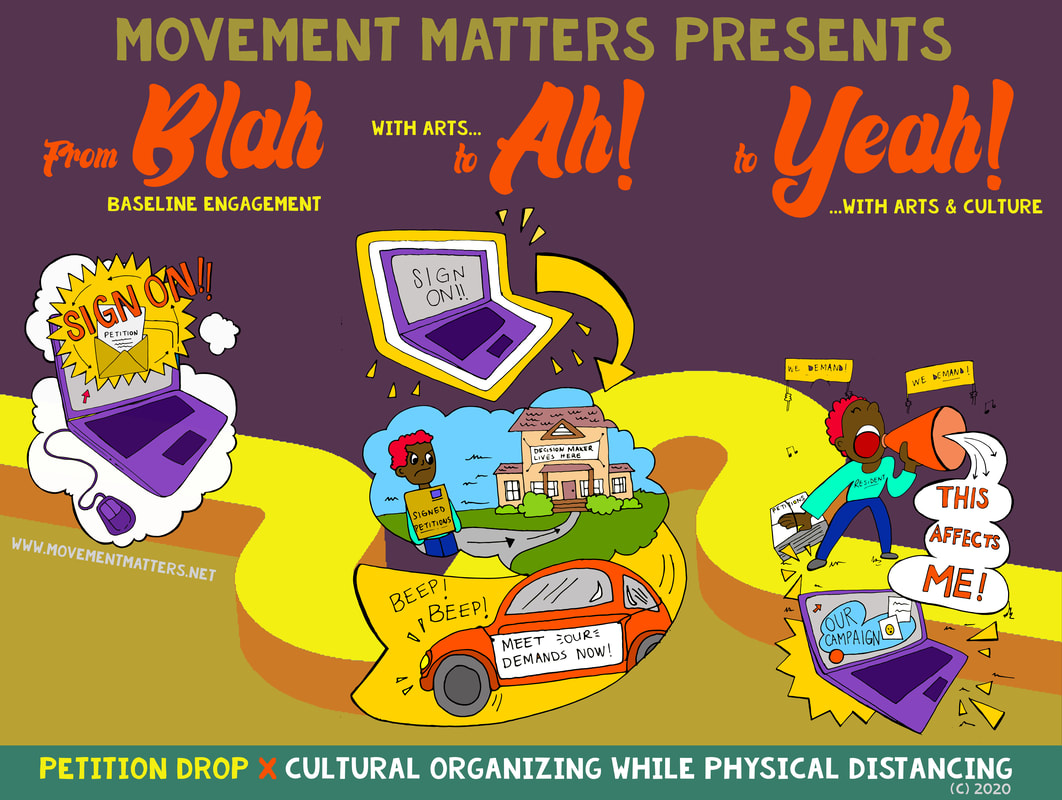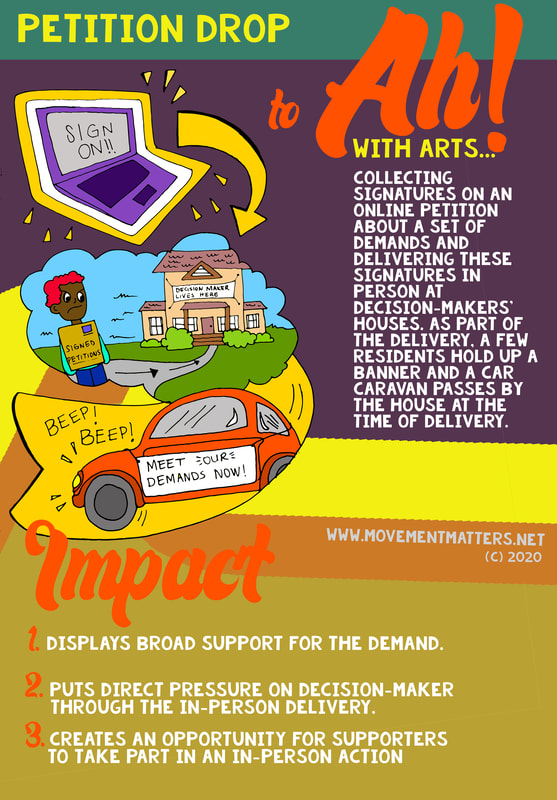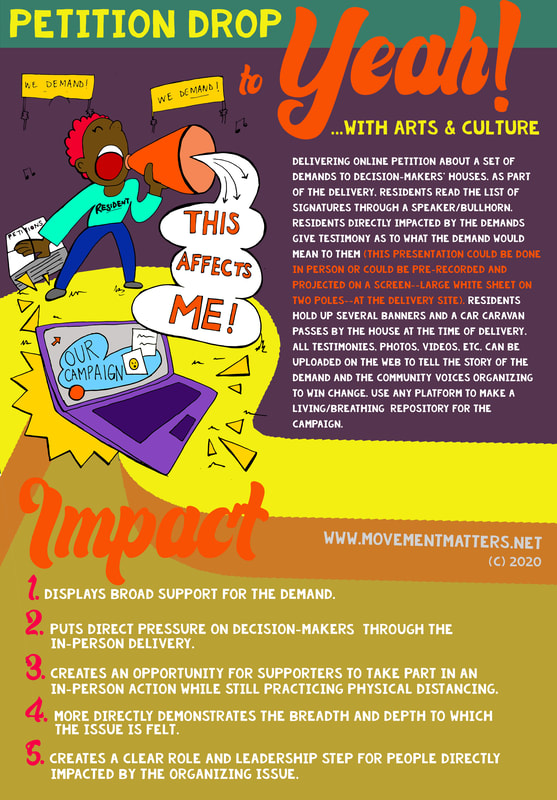|
Popular education is a bedrock of Movement Matters’ unique approach to community organizing and transformative change. We created our Advanced Popular Education Training (APET) to dive deep into both theory and practice while also allowing popular educators the space to contemplate and reshape their own practice. One of our central themes is the pivotal role of ritual and of somatic healing in building learning spaces for communities, in embodying a “learning by doing” of the world we are trying to build. Without radically transforming our internal processes for connecting, learning, and building together, our work for external change will collapse. Without places and spaces to put into action the vision, trust, communication and relationships built among members, the internal will collapse. And this fine balance, this process of titration, is what we accompany, energize, and sustain as popular educators and cultural organizers. “Movement Matters' Advanced Popular Education Training helped me take a step back and really dig deeper within myself, asking hard questions of who I am as a popular educator, how I got here, and why certain ways of training are difficult for me. I also found new knowledge and learning, and feel stronger and more equipped to curate and facilitate popular education spaces. I feel supported and walked away from the training feeling seen in ways that: 1.) I didn't know I wasn't receiving, and 2.) I didn't know I had been missing or could have access to.” A benefit of the virtual space of the APET is the ability to integrate practice into the life of the training. The time in between sessions is used not just to reflect and process information, but also to experiment with and embody new practices. We are also able to spend one-on-one time with participants in between sessions to tailor course learning to their specific needs. Another key element of popular education that is well served by this more individualized approach is the development and integration of codes as a tool for deeper concientizacion. Being able to envision and integrate prompts that allow community members to simultaneously recognize issues that they face, share their knowledge and understanding, and open the door for new information and perspectives are difficult skills to hone, especially in the abstract. Being able to work through specific examples with participants based on real-time community issues grounds this important piece of work that differentiates popular education from political education. The APET continues to be a unique offering of Movement Matters’ training work. It integrates beautifully with our Advanced Facilitation Training and continues to be a way to build deep relationships with organizers and change makers across the country. “This advanced training provided a variety of ideas for popular education activities and practices that I can bring back to my organization, and a framework to think about the purpose of the practice so that we are not just doing popular education for the sake of it—without moving our peoples to action. I believe I will be more creative in developing our popular education approach with our members, guide conversations way better, and also be more intentional about how I do it and why.” Our 2023 Advanced Popular Education Training was made up of organizers, popular educators and artists from groups around the country including: National Domestic Workers Alliance, African Communities Together, SEIU1199, Kalonize/Aloha ʻAina, PeoplesHub, Black Organizing Center, Center for Popular Democracy, and the Center for Economic Democracy. To apply, visit: Advanced Training Series Application deadline: Monday, August 2nd. Limit 8-10 participants. Questions? [email protected]
For more information on our Advanced Popular Education Training or to bring an Advanced Training to your organization, connect with us. Movement Matters is based in Washington, DC. We work regionally with various communities and with national partners. Facilitating Transformational Spaces & Experiences: |
AuthorsMOVEMENT MATTERS Archives
October 2023
Categories
All
|
